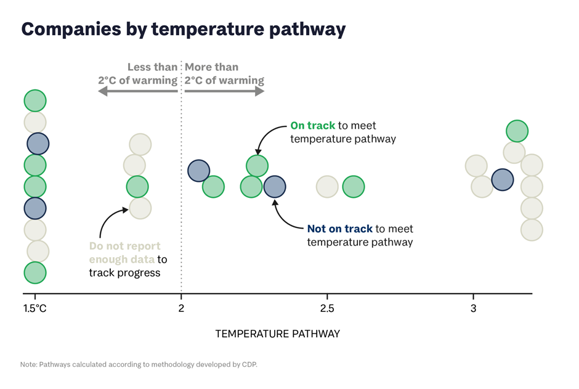The Better Food Index Reveals Under-Reporting on Sustainability Targets

By Sophie Barnett, Researcher on Tortoise’s Better Food Index
A RESTAURANT IS ONLY AS SUSTAINABLE AS ITS SUPPLIERS. TORTOISE’S BETTER FOOD INDEX MEASURES THE IMPACT OF THE LARGEST 30 UK FOOD PRODUCERS – THE COMPANIES THAT SUPPLY RESTAURANTS AND SUPERMARKETS – RANKING THEM ACCORDING TO THEIR COMMITMENTS AND ACTIONS TOWARD A SUSTAINABLE FOOD SYSTEM. READ ON FOR SOME OF THE FINDINGS OF THE SECOND ANNUAL UPDATE.
Emissions
The food system is responsible for one third of global greenhouse gas emissions.
Research shows that 90% are Scope 3 — emissions for which a company is indirectly responsible, across its entire value chain.
However, under the Streamlined Energy Carbon Reporting requirement, companies are only required to report Scope 3 emissions associated with business travel.
As a result, half of companies in The Better Food Index that do report their Scope 3 impact appear to underreport. Meat companies, which are likely to have high Scope 3 emissions, report even less – seven out of 10 either don’t report, or underreport, their Scope 3 emissions.

Pilgrim’s UK, a pork and lamb producer, reported just 105 tonnes of Scope 3 emissions in 2021, accounting for 0.21% of its total emissions. That’s 250 times less than the amount reported by Hilton Food Group, a beef and lamb company.
A Pilgrim’s UK spokesperson said that the company is “not required to report full scope 3 inventories within the Streamlined Energy Carbon reporting requirement.” and that the company has “targeted achieving net zero in [its] scope 3 emissions by 2035” with “clear actions in place to reduce [its] scope 1 and 2 emissions in [its] own operation”.
Measuring indirect emissions is notoriously difficult. Long supply chains make it hard to obtain farm-level data, and industry averages are imprecise substitutes.
But Mike Barry, former Director of Sustainable Business at Marks and Spencer, told Tortoise that businesses need to anticipate new disclosure requirements and climate risks, moving from tactical risk management to strategic thinking. The challenges associated with reporting essential metrics will no longer be viable excuses by 2030.
Walk the talk
Many companies don’t disclose enough sustainability data, so their progress towards their own targets can’t be tracked.
Tortoise analysis has determined that if all 30 companies met their emissions reductions targets, they would collectively be on track for 1.95˚C of global heating by 2100. This is over the Paris Agreement target of 1.5˚C, but just under the upper limit of 2˚C.
But, of the 25 companies with these targets, half haven’t reported information about what their emissions were to begin with. Another five aren’t on track to meet their own targets, based on their recent progress in cutting emissions.
The story on food loss is similar. Around a third of the food that is produced globally is wasted, and food waste accounts for half the food system’s emissions. The Better Food Index shows that over half of companies that have committed to reducing food loss don’t report data that can be used to track their progress.
Labour
Companies supplying supermarkets and restaurants face big swings in demand, and have to adjust their production capacity at short notice. This means they often rely on contract labour, which can be outsourced to gangmasters, creating high-risk of worker exploitation.
Last year, the Financial Times reported investor pressure to eliminate labour exploitation on UK farms, which are becoming increasingly dependent on workers from outside the EU. A large proportion of workers come from Indonesia and Nepal where they are often charged excessive, illegal recruitment fees, leaving many trapped in their jobs due to debt. Other reported abuses included unsafe housing and deportation threats.
Every company in the Index is required by the UK government to publish a modern slavery statement, reporting on modern slavery risk. But with no consistent reporting framework, it’s hard to compare their performance.
Many use different criteria for risk-assessment and fewer than half of the 30 companies say how many of their suppliers they’ve risk-assessed. Only seven companies report on whistleblowing cases, and just four have published a full list of their direct suppliers.
Climate and migration-related risks will only become more pressing in the next decade. Companies will need shorter, more transparent supply chains and more comprehensive reporting to understand and mitigate this.
The Better Food Index uses publicly-reported data on over 100 sustainability metrics to measure the impact of the largest food producers on the health of people and the planet. Read our findings here and get in touch at betterfoodindex@tortoisemedia.com



